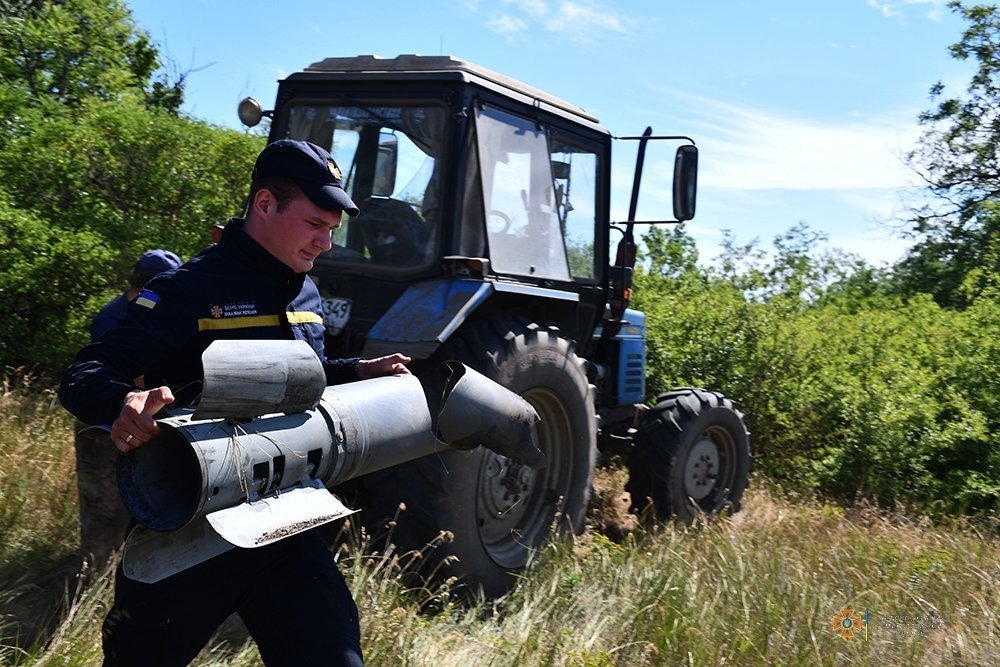
Ukrainian Reconstruction Aid is Vital for Global Food Security
Continued American support for Ukraine may be in jeopardy, as indicated by a recent poll showing that American public approval for aiding Ukraine “as long as it takes” dropped from 58 to 48 percent by the end of 2022. The decline is juxtaposed by Zelensky’s and other Ukrainian official’s calls for reconstruction plans and funds during the World Economic Forum’s (WEF) annual meeting in Davos on January 16-20, 2023. Despite declining approval, continued assistance is crucial to Ukraine’s defense, but additionally, aid to Ukraine should not end with the war. U.S. reconstruction assistance is important to national and global security not only because it will help Ukraine develop into a strong democratic state and help rehabilitate millions of refugees, but also due to the importance of Ukrainian grain exports to developing and low-income countries. Post-war aid for the Ukrainian economy will be crucial for combatting international food insecurity. An abandoned post-war Ukrainian economy, by contrast, will struggle to maintain pre-war grain exports, generating food insecurity, unrest, and violence in countries reliant on Ukrainian grain.
Ukraine ranks 1st in the world for production of sunflower seed oil, 3rd in barley, and 5th in wheat. Forecasts predict that production will decline by 35 million tons during the 2022/23 harvest year. This coincides with a predicted 20 million ton drop in grain exports. Despite the UN-brokered Black Sea Grain Initiative between Russia and Ukraine which allowed 18 million tons of grain and oilseeds to be exported from Ukrainian ports, the effects of a severe decline in production will be felt long after the war ends because of reduced labor force, damaged and contaminated fields, and destroyed machinery. For instance, fields sown by Ukrainian farmers have already declined by 22 percent from 2021 to 2022. Additionally, the World Food Program relies on Ukraine’s grain for its lower cost and central location to meet its goals for global food security. Developing countries will suffer the most as they rely on affordable Ukrainian grain.
International markets can compensate for the shock, but will producers want to increase production to provide food to countries in need, instead of their own citizens? Climate change is also accelerating food insecurity: droughts have led to diminished crop yields, developing countries have decreased growing ability, extreme weather, and changing growing zones are all impacting the stability of the global food supply. Keeping Ukrainian grain in the global marketplace, rather than simply compensating for and usurping it, is critical to food security.
Food insecurity acts as an accelerant of instability in many conflicts: famine and food exportation accelerated the Darfur war and poor agricultural policy led to devastated crop yields which exacerbated dissent leading to conflict in Syria. Regional security issues can quickly threaten U.S. national security as an abandoned Ukrainian economy can fuel conflict in food scarce countries. The U.S. can prevent future security challenges from the cascading effects of limited Ukrainian grain by providing direct aid to the Ukrainian agricultural industry in addition to the reconstruction of a functioning Ukrainian government, continued defense, and humanitarian assistance. Reconstruction will be crucial to developing a stronger Ukrainian state and robust agricultural economy rather than just stemming the bleeding from the war.
The U.S. has already provided some direct assistance to Ukrainian farmers. In November 2022, USAID contributed $100 million in assistance to Ukrainian farmers. This assistance provided material support, via “29 grain loading machines, 8,000 storage sleeves, and 69 modular storage facilities,” designed to store grain for increased export times. As mentioned above, Ukrainian farmers will be limited by the physical ravages of war, but the financial constraints from stolen or destroyed grain storage could devastate future harvests before they are ever planted. Russian grain theft is especially damaging to farmers because if they cannot sell their harvest, they may be unable to afford the materials to plant the next crop. Additionally, destruction of storage capacity means that even with pristine fields and equipment, grain may spoil before being sold.
When the war ends, the U.S. must not end its aid to Ukraine abruptly. Instead, the United States will need to adapt its current aid to address food insecurity and develop novel plans to assist the reconstruction of Ukraine’s agricultural industry. The Biden administration made it clear that global food security is a major part of U.S. national security and the time to prove this is coming. Just as the United States arms Ukraine to defend itself against Russia, the U.S. must arm the Ukrainian agricultural industry and economy to defend against food insecurity.
Image credit: State Emergency Service of Ukraine under creative commons license





